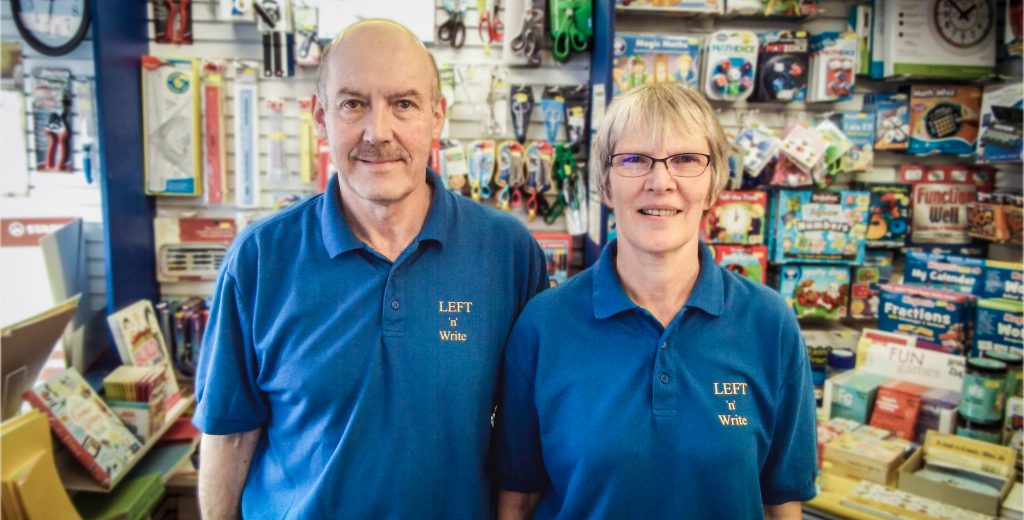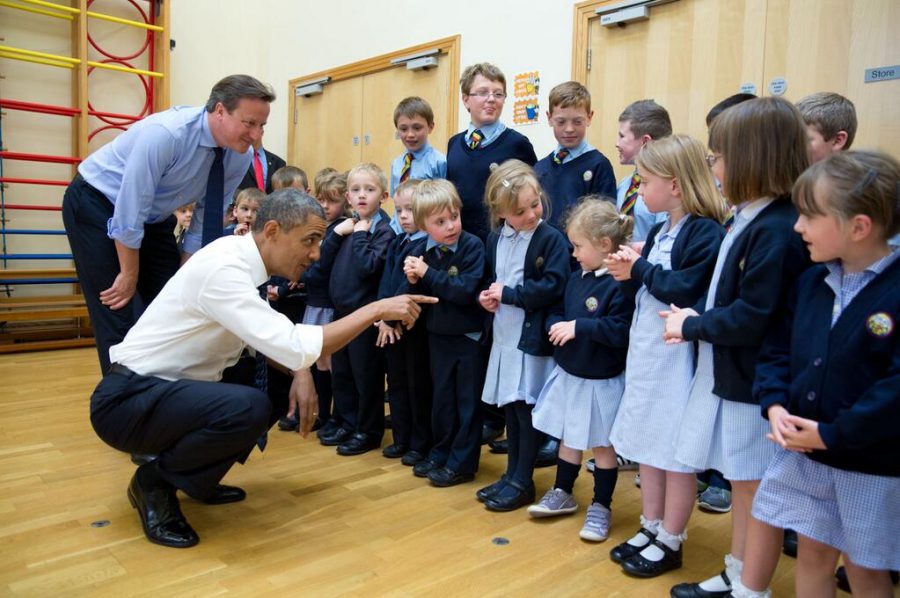There are, sadly, many types of discrimination that are highly visible in our society, and most of us are aware we need to do more to address them.
Being left-handed is probably not one of these cases, yet campaigners insist that institutional failure to provide suitable care for the needs of left-handed children at school is holding them back, and causing issues later in life.
There’s a lot of research into what left-handed people are and are not: studies suggest they are more intelligent, more inhibited, more skilled at fighting – and, of course, there’s the ancient superstition that lefties are evil – the word ‘sinister’ comes from the Latin for ‘left’.
Despite this, and the overwhelming (and scientific) evidence that lefties are amazing, some activists are suggesting there a clear lack of awareness in society that leaves some people within these groups left behind their peers.
Education that doesn’t work for everyone

Image Credit: Left n’Write
Campaign groups insist left handed children are being penalised in the classroom and that due to a lack of awareness many children’s educations are being stifled by a problem that could be easily fixed.
They say failure to accommodate lefties creates a vicious circle of lower marks and lower self-esteem, resulting in an inequality later in life.
Mark Watson, with his wife Heather, run a campaign group and shop for left-handers called Left n’ Write, and have called for a change to the national curriculum, among other things, to help address the issue.
He told RightsInfo: “There’s a bit in [the national curriculum] on handwriting which is statutory so schools have got to do it, and underneath that there’s a bit which says left handers should have appropriate guidance and that is non-statutory.”
“It’s as though they thought ‘handwriting is really important’ so we’d better include left-handers but not make it statutory. [Nick Gibb, Minister of State for Schools] wasn’t willing at the time to make it statutory.”
The Government isn’t taking responsibility

Image Credit: Maxpixel
Nick Gibb wrote in a letter to campaigners last week that the onus was instead on teachers to provide students with “whatever specific support they require” in the classroom.
On this subject, Watson told us “It’s not difficult to sort out. It’s not rocket science. It doesn’t cost a lot of money. It just needs someone to say: helping left handed children should be a required part of initial teacher training.”
But what about those would no longer be impacted by education reform? Around 10 per cent of the population of the UK is left-handed, most of whom are already adults, where research suggests they suffer professionally due to their handedness.
It’s not just children who are disadvantaged

Image Credit: Joint Base San Antonio
A study in 2004 suggested even those in a highly-specialised, well-paid job like surgeons are victim to this discrimination. Left-handed surgeons reported a lack of access to left-handed instruments while training and were more likely to suffer injury due to this difficulty.
Shockingly, one in 10 left-handed surgeons reported that they would be uncomfortable being operated on by a fellow left-handed surgeon.
Although a niche example, this highlights the issue. Being left-handed is not a disability but due to simple failures in education policy and awareness they see themselves as disadvantaged in competence, and even worse are at an increased risk of harming themselves.
There have even been suggestions from activists that prison inmates are disproportionately left-handed compared to the general population, though the Ministry of Justice says they have no record of inmate handedness.
More support would help everyone

When it comes to left-handed adults in the general population, Watson says a letter of thanks from an “older” customer who he advised briefly on handwriting makes it clear how simple education and support could help the majority of left-handed people.
She writes that she was “unexpectedly overwhelmed emotionally as memories of childhood struggles were triggered. Messy writing, scruffy exercises books, quietly envious of the so-neat and tidy scripts of classmates.”
“Then what really got to me was that my quiet struggle need not have been. I realised that in all my years you were the very first person to have sat me down with pen and paper to help me understand why handwriting could be a challenge and how simple techniques could help.”
Lefties in the real world
 Image Credit: Hannah Morgan / Unsplash
Image Credit: Hannah Morgan / Unsplash
RightsInfo writer and proud leftie Harvey Slade told us about his experience of hand discrimination when he was “turned down from a job at an ice cream shop because ice cream scoops were designed for right-handers”.
This was a big problem as ice cream scoops were made for right-handers
“It was a casual summer job and the guy seemed happy enough to take anyone, as he said the job ‘wasn’t difficult,'” he explained. “Then he got me to fill in the official application form, which I did, in my left-handed scrawl, and he immediately stopped me. I was explicitly told that this was a “big problem” as ice cream scoops were made for right-handers.”
“I left, shaking his hand (with my right hand) but I never heard back. Before signing the form he made it sound as if the job was mine.”
Other RightsInfo readers told us that “everything” seems designed for right-handers, from scissors to can openers. Equally though, some weren’t even aware “left-handed discrimination was a thing”.
There are, perhaps, bigger human rights issues in the world, but the right to not face discrimination is an important one, and is something we should all be working towards. Any barriers to accessibility of information, education, or the ability to freely express yourself and your ideas should be dismantled – even if you never thought it was a serious issue.






